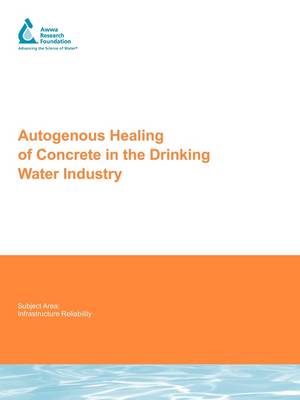Little research expenditure has gone towards the investigation of processes responsible for the corrosion of concrete drinking water infrastructure. One important mode of attack on concrete involves access of corrosive water to underlying reinforcing steel through cracks. Under some circumstances it is known that cracks in the concrete surface can repair themselves through reactions with constituents in the water. This phenomenon has been termed "autogenous healing."
The objective of this project was to examine the effects of bulk water chemistry on concrete corrosion and autogenous repair of concrete. This project identified that autogenous healing can be controlled by water chemistry, and it can be an effective method of sealing small cracks that initiate in concrete before they develop into larger cracks that can cause failure. When high levels of magnesium and silicon are present this seal can develop high strength. Carbonation of internal surfaces was not detected when cracks were sealed via autogenous healing. In some cases, water permeability and chloride diffusion are impeded by autogenous healing regardless of strength attained.
- ISBN10 1843392143
- ISBN13 9781843392149
- Publish Date 14 August 2008
- Publish Status Out of Print
- Out of Print 10 June 2016
- Publish Country GB
- Imprint IWA Publishing
- Format Paperback
- Pages 100
- Language English
